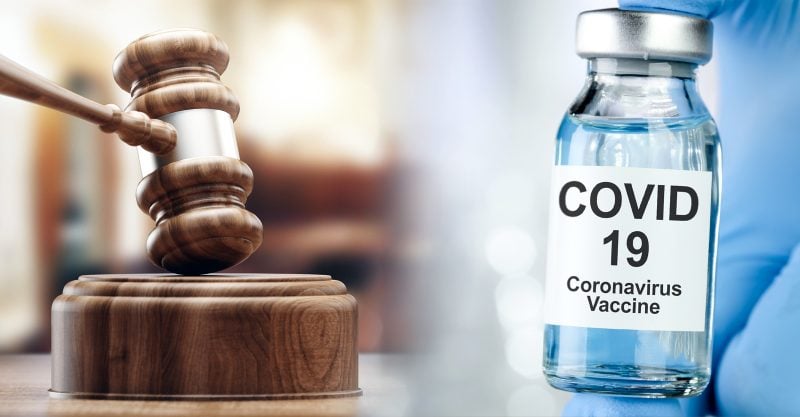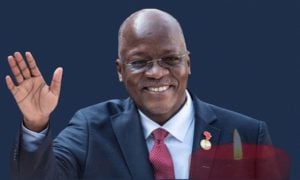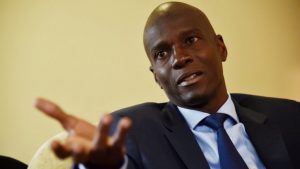Several Anti-Covid-19 Vaccine Presidents Assassinated, Mainstream Media Silent, COVID-19 Jabs “Coincidentally” Rolled Out Just Days Later

All Global Research articles can be read in 51 languages by activating the “Translate Website” drop down menu on the top banner of our home page (Desktop version).
Visit and follow us on Instagram at @crg_globalresearch.
***
The Covid-19 vaccination programme is well underway and governments around the world are continuing to push the jab agenda, aiming to achieve the worldwide 70 per cent inoculation threshold. However, not everyone is on board with the vaccine narrative as some countries have turned away from big pharma and their experimental injections.
Three countries on this planet have refused to accept the Covid-19 vaccine from the World Health Organisation (WHO), with each official to directly decline the jab being a president who each coincidentally ended up dead.
Is this just a coincidence? Or is there something more sinister taking place?
Tanzania
At the start of the Covid-19 vaccine rollout, Tanzania stated in early February that the country was going to reject the jabs and opt for alternative homoeopathic remedies. The health minister announced that the country had “no plans in place to accept COVID-19 vaccines” after President John Magufuli expressed doubt about vaccines sourced abroad, stating that he would only adopt vaccinations after they had been certified by Tanzania’s own experts.
Health Minister Dorothy Gwajima said at a press conference: “We are not yet satisfied that those vaccines have been clinically proven safe.”
Following this, Gwajima and other health officials drank a herbal remedy concoction including ginger, garlic, and lemons, and inhaled steam from herbs, promoting them as a treatment to boost the immune system and help kill off the virus. Gwajima then warned journalists about reporting unofficial figures on Covid-19 or any disease.
Tanzania did face lockdowns, however, as all schools and universities were closed in March 2020 to deal with a rise in cases. In April 2020, Tanzania stopped releasing Covid-19 statistics – the last public statistics stated that there had been 509 positive cases 21 deaths, and 183 recoveries. In June later that year, President Magufuli declared that the country was free from Covid-19.
At the end of January 2021, Magalufi said:
“You should stand firm. Vaccinations are dangerous. If the White man was able to come up with vaccinations, he should have found a vaccination for AIDS by now; he would have found a vaccination [for] tuberculosis by now; he would have found a vaccination for malaria by now; he would have found a vaccination for cancer by now.”
Following this, Matshidi Moeti, head of the WHO Regional Office for Africa, encouraged Tanzania to prepare for the vaccine rollout, to put in place preventative measures to protect its population, and to share data on the Covid-19 situation with WHO and neighbouring countries. Tanzania, however, stood firm and refused to sign up for the vaccine programme, and in February 2021, the country was not on the COVAX vaccine distribution list.
John Nkengasong, director of the Africa Centres for Disease Control and Prevention, said:
“Tanzania is a sovereign country, we can’t go there and pull down data. Not cooperating will make it dangerous for everybody.
“We know what works”, he added, warning that all Africa’s instruments and targets for development will be compromised “if we don’t get this virus out of our way.”
In March 2021, just months after first rejecting the Covid-19 vaccine, President John Magufuli was reported to have died from heart complications aged 61. The mainstream mediareported that the president died at a hospital in Dar es Salaam after he had not been seen in public in the weeks prior to his death.
At the time, opposition party members said that the president had contracted Covid-19, however, it was later confirmed by Vice President Samia Suluhu Hassan that he had died at 6pm on 17th March 2021 from heart complications that were not connected to Covid-19.
Following President Magufuli’s death, Vice President Samia Suluhu Hassan was sworn in as his replacement within 24 hours to serve the remainder of Magufuli’s five-year term which began last year.
Shortly after Magafuli’s death, President Hassan formed a committee of experts to look into the safety and effectiveness of Covid-19 vaccines, leading to Tanzania joining the COVAX vaccine distribution list on 15th June.
The newly-appointed president then launched the country’s Covid-19 vaccination programmeofficially in July after receiving just over a million Johnson & Johnson Covid-19 vaccines that were donated by the United States through the COVAX scheme.
President Hassan was the first to receive the vaccine on live television and encouraged others to get the jab, promising that they are entirely safe.
“I’m a mother of four, a grandmother of several grandchildren, and a wife, but most of all I’m the President and Commander in Chief. I wouldn’t put myself in danger knowing that I have all these responsibilities as the shepherd of the nation,” she said during a ceremony at State House in the city of Dar es Salaam.
Additionally, among those vaccinated was Health Minister Dorothy Gwajima, the doctor who promoted herbal remedies and alternative Covid-19 treatments in the previous year.
The live TV vaccinations were broadcast to combat alleged medical misinformation surrounding the vaccines which were apparently being shared on social media and from religious and political leaders.
Burundi
President Nkurunziza expelled WHO officialsfrom the country for mismanaging the Covid-19 scare and refused to impose restrictions on the small African nation. In a letter dated May 12th 2020, addressed to WHO’s Africa headquarters, Burundi’s foreign ministry said the four officials – one of the country’s top WHO representatives and three other experts – were “declared persona non grata and as such, must leave the territory of Burundi” by Friday 15th May 2020.
WHO’s top official in Burundi, Dr Walter Kazadi Mulombo, the country’s coronavirus coordinator Dr Jean Pierre Mulunda Nkata,communicable diseases head Dr Ruhana Mirindi Bisimwa, and a laboratory expert in the testing for COVID-19, Professor Daniel Tarzy were expelled as a result of the directive.
A Burundian official told the media:
“It is the whole WHO team responsible for supporting Burundi in its response against COVID-19.
“They are expelled and the health minister has totally excluded WHO, accusing it of unacceptable interference in its management of the coronavirus.”

Although, just a month later in June 2020, President Pierre Nkurunziza died after reportedly suffering a cardiac arrest aged 55.
According to the mainstream media, the president was admitted to hospital on 6th June 2020 after he started feeling unwell, where his condition seemed to improve. However, just days later the president was reported to have suffered a cardiac arrest and was unable to be revived.
General Evariste Ndayishimiye replaced Nkurunziza as president shortly after his death.
Following in the footsteps of Tanzania, Burundi became the second African country in early 2021 to say that it didn’t need any Covid-19 vaccines. In February 2021, the health minister, Thaddee Ndikumana told reporters that prevention is more important, stating at the time that “since more than 95% of patients are recovering, we estimate that vaccines are not yet necessary.”
With Ndayishimye now as president, Burundi quickly changed their mind about the vaccines and announced in July 2021 that it would take Covax vaccines on the condition that Burundi does not sign a waiver that would commit the government to compensate victims of “undesirable” side effects from the jabs.
The health minister, Ndikumana, who originally opposed the vaccines said that the country accepted Covax vaccines offered by the World Bank, adding: “When the vaccines are here, any Burundian who wants to can go [and get a jab].”
Haiti
After the World Health Organisation (WHO) announced the vaccine rollout worldwide, the Haitian government declined to receive the AstraZeneca jabs. In April 2021, an estimated 756,000 vaccine doses were scheduled to arrive in Haiti in May, free of charge to the government, according to The Guardian.
At the time, President Jovenel Moïse refused to accept the free vaccines, which was a valid move considering a number of countries such as Denmark, Austria, Norway and Thailand had halted the use of the AstraZeneca jab after severe adverse reactions occurred in recipients.
Bloomberg reported that the Haitian government declined the jabs due to the side effects linked to the AstraZeneca vaccine. However, other mainstream media outlets reported a different story, stating that the government refused the initial Covax shipment due to lacking the infrastructure to properly store the vaccine. Although, UNICEF told The New Humanitarian that 80 percent of Haiti’s temperature-controlled supply chain storage had been upgraded in the last few years.
Despite this, the Health Ministry Director General Laure Adrien said: “When we decided to delay the 756,000 doses from the COVAX programme, we weren’t in the same situation as we find ourselves today.”
Not only were the new shipment of Pfizer vaccines set to come from the Biden administration, but they were also set to arrive in July – the same month that President Moïse was assassinated.
On the 7th July 2021, the Haitian President, Jovenel Moïse, was shot and killed in his home in Port-au-Prince. The official story states that during the early hours of the morning, a group of two dozen mercenaries, including two US-Haitian citizens and a number of Colombians, several of whom were former soldiers, stormed Moïse’s villa, pretending to be a US Drug Enforcement Administration (DEA) raid, overpowering staff, and security.
During the attack, Moïse was shot up to 12 times and his house was ransacked. In the hours that followed, a number of the alleged attackers were either killed in shootouts or captured, some at Haiti’s Taiwanese embassy where they had sought refuge.
Following the assassination of president Moïse, Interim Prime Minister Claude Joseph was elected into power. Shortly after this, on Wednesday 14th July – just a week after the president’s assassination – Haiti received its first 500,000 doses of the Covid-19 vaccines donated by the US government through the COVAX programme.
However, this is simply just a coincidence that the vaccine rollout would begin after the president was shot to death at his home a week prior…
Mainstream Media Silence
Of course, the mainstream media have remained silent on the assassinations of the presidents, only speaking out on the stories to combat the “disinformation” that they were murdered for being against the vaccine. Fact-checkers have been forced to come out of the woods to “prove” that the deaths of the presidents can be explained.
However, for those with a brain, it does seem odd that the countries all quickly started accepting the vaccines once their anti-vaccine presidents were out of the picture.
*
Note to readers: Please click the share buttons above or below. Follow us on Instagram, @crg_globalresearch. Forward this article to your email lists. Crosspost on your blog site, internet forums. etc.
Featured image is from Children’s Health Defense




No comments:
Post a Comment